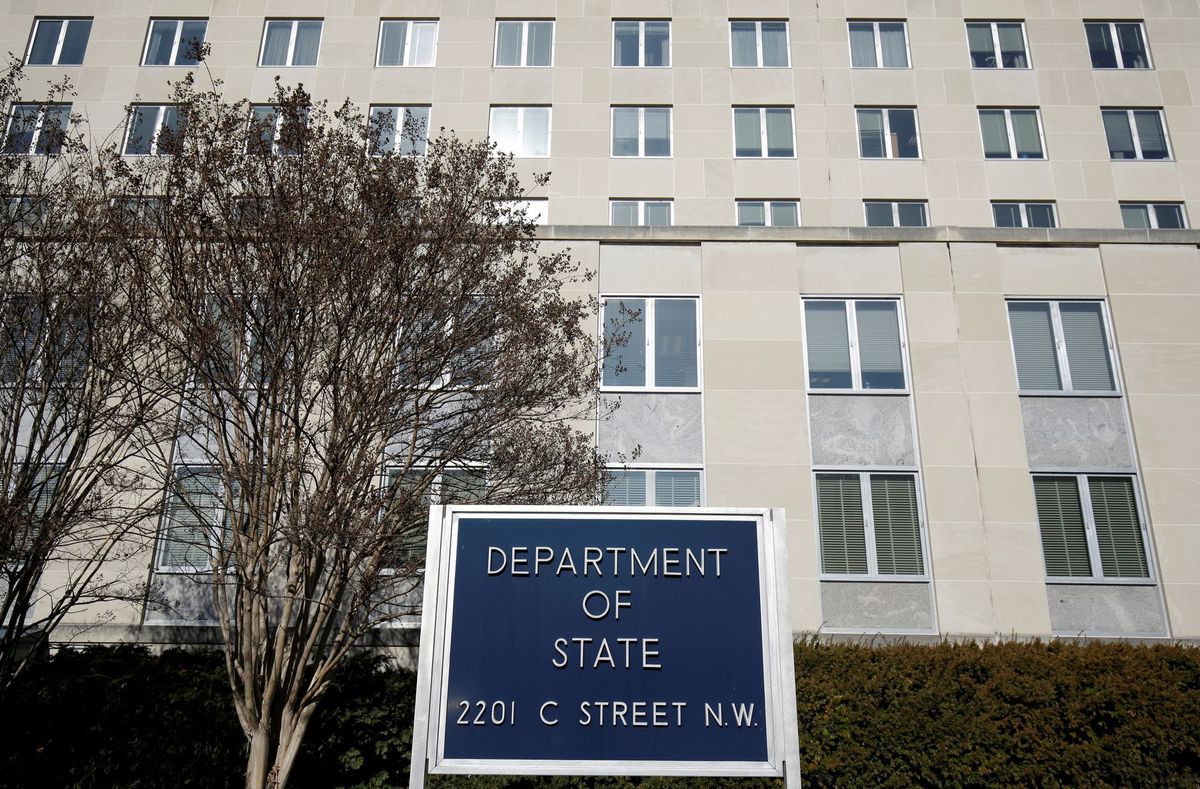What does the US Department of State do?

A few minutes every morning is all you need.
Stay up to date on the world's Headlines and Human Stories. It's fun, it's factual, it's fluff-free.
While much of what the Department of State does is obscure or unknown to the average citizen, it is considered among the most powerful and important departments in the executive branch.
As President Joe Biden attempts to enact an ambitious array of domestic policies, his foreign policy goals remain a vital if less obvious aspect of his broader agenda. The tasks the Biden administration has taken on include restoring relationships with the United States’ allies, many of which had been strained during the presidency of his predecessor, Donald Trump.
Taking the lead on those efforts is the US Department of State (DOS) and Biden’s recently confirmed secretary of state, Antony Blinken. Blinken is the head of the DOS (alternatively known as the State Department) and serves in the presidential cabinet as the chief foreign affairs adviser to Biden. As such, Blinken will spend much of his time in the position traveling abroad and meeting with foreign leaders.
While much of what the DOS does is obscure or unknown to the average citizen, it is considered among the most powerful and important departments in the executive branch. Its responsibilities expanded considerably throughout the 20th century as the US grew into a superpower. It currently manages diplomatic relations in roughly 180 countries.
The mission of the Department of State
The DOS states its mission is to “[lead] America’s foreign policy through diplomacy, advocacy, and assistance by advancing the interests of the American people, their safety and economic prosperity.”
To complete that mission, the DOS includes more than a dozen bureaus and offices that manage a range of policy concerns, from civil rights to global women’s initiatives to cyber-related issues.
To advance US foreign policy, the DOS sends representatives to the United Nations and is responsible for directing US ambassadors (or Chiefs of Mission) in foreign nations. These various figures ensure that US interests are represented in negotiations and diplomatic discussions. The DOS also staffs US embassies and consulates with Foreign Service officers, of which there are approximately 15,600.
As part of its mission to protect US security concerns abroad, the DOS is charged with countering terrorism while protecting US citizens and assets. The department does this by strengthening law enforcement in foreign nations, expanding border controls, ensuring the sharing of global information and financing counterterrorist programs, among other initiatives.
For Americans visiting or living in foreign nations, one of the most important functions the DOS performs is operating US embassies and consulates. In addition to maintaining diplomatic relations in foreign nations, these embassies provide information for US citizens abroad and assistance if, for instance, they lose their passports or run into other problems while traveling.
When a security or health crisis occurs, it is the DOS that ensures American citizens are safe. For instance, when the COVID-19 pandemic spread rapidly in the first half of 2020 and international travel essentially came to a halt, it was the State Department that helped get nearly 90,000 American citizens on flights back to the US. It was also the DOS that provided alerts about the pandemic to citizens abroad.
The US secretary of state
While the president is considered the “chief diplomat,” the secretary of state helps negotiate treaties with foreign powers and frequently serves as the face of the US government overseas. The secretary of state is the third-highest ranking member of the executive branch, after the president and vice president, and comes after the Senate’s president pro tempore in the presidential line of succession.
Blinken was officially sworn in as the 71st US secretary of state on January 26, 2021. He took over for the acting secretary of state, Daniel Bennett Smith, who had served in that role for only one week following Biden’s assumption of the presidency. Prior to Smith, Mike Pompeo had been the secretary of state under Trump since March 2018, when he took over for Rex Tillerson, who had been fired.
Blinken’s first overseas trip as secretary of state was to Asia in March, where he traveled to Japan and South Korea. The choice of Asia as Blinken’s first trip was said to indicate how important the continent is in Biden’s foreign policy agenda, especially as the new president seeks to remake the US’ relationship with China.
Alongside the secretary of state, there is a deputy secretary of state. Biden nominated Wendy Sherman, a career diplomat, for the role back in January. She was confirmed by Congress in early April, becoming the first woman to serve in the role.
The first secretary of state in US history was Thomas Jefferson, who served in the cabinet of President George Washington before becoming vice president to President John Adams and then the third president of the US. When Jefferson served in the position, the US only had two diplomatic posts: one in London, England and the other in Paris, France.
As of September 2016, there were 75,231 full-time employees who work in the State Department, most of whom work domestically.
Have a tip or story? Get in touch with our reporters at tips@themilsource.com




Comments ()